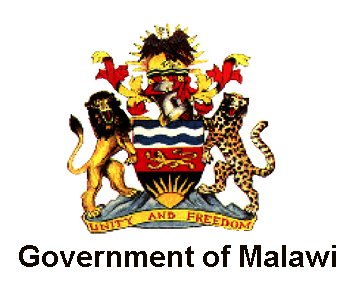First Minister Alex Salmond has used an address to some of the world’s greatest thinkers and innovators to highlight Scotland’s global leadership on climate change.
Speaking after TEDGlobal 2012 – the summer conference of the nonprofit organisation bringing together people from technology, entertainment and design to come up with ideas worth spreading – the First Minister announced that Scotland is to help Malawi build a renewable energy policy which will address climate change and put Malawi on the path to ‘green growth’.
In Malawi 93 percent of the population do not have access to electricity. Through this initiative Scotland will help Malawi extend access to electricity across the nation – and to do so in a sustainable way that does not add to carbon emissions.
The initiative comes further to Scotland championing ‘climate justice’ and UN Secretary General, Ban Ki Moon, praising Scotland’s “deep commitment” to sustainable energy and inviting Scotland to deepen its international engagement on the UN’s sustainable energy Sustainable Energy for All initiative – which aims to ensure universal access to modern energy services and double the share of renewables in the global energy mix by 2030.
Mr Salmond said:
“Scotland is leading the way in tackling climate change and developing a low carbon economy and that role has been recognised by the United Nations Secretary General. Our commitment and expertise in the areas of renewable energy and climate change are an important element of Scotland’s contribution to the world and to international development in particular.
“Much of the region of Chikhwawa in Malawi did not have electricity until a programme led by Strathclyde University, funded by Scottish Government, installed a solar energy system. Now school buildings have lighting and power sockets allowing studying in the evening and its health post now has refrigeration allowing vaccines to be stored more effectively.
“We will work with the Government of Malawi to help extend electricity provision from test areas such as Chikhwawa. Experts in climate change and renewable energy from the Scottish Government will work with Malawian officials to help develop their energy and climate change policy – helping increase quality of life in a sustainable way.
“Providing this support is an important step forward in our relationship with Malawi. It demonstrates that partnership with countries like Malawi is more than just about financial aid but also about building capacity and sharing our learning and expertise with those that need it the most.
Mr Salmond continued:
“Scotland’s global leadership on climate change or climate justice comes about almost by accident – although a very fortunate accident.
“The original devolution settlement was that anything which was not specified as being reserved, was considered to be devolved. And since climate change was not such a high priority in the late 1990s as it is now, it was not considered as a subject which should be reserved.
“But that fortunate accident raises a major question. If this Parliament can seize the initiative on the most profound environmental, economic and moral issue the modern world faces – isn’t it ridiculous that we can’t take decisions on our taxation system, or welfare reform?”
Welcoming the initiative, Graham Ault of the University of Strathclyde said:
“At the University of Strathclyde, we are excited by the opportunity to deliver real changes to the energy prospects of Malawi. MREAP is working closely with a number of Malawi Scotland partnerships across the programme. The programme includes community energy development support and finance, wind power resource mapping and feasibility as well as education, training and research.
“Supporting the development of Malawi’s renewable energy policy is highly complementary to those activities and will provide the framework for many more stakeholders, government and the private sector to participate in the development of sustainable energy in Malawi at all scales.
“Scotland has much to offer Malawi and other countries in renewable and community energy development and it is really pleasing to see the policy support strand now taking shape.”
Related information:
The Scottish Government will provide technical support to the Government of Malawi to assist the development of a comprehensive renewable energy policy in the country. It follows funding from the International Development Fund of £1.7 million towards The Malawi Renewable Energy Acceleration Programme (MREAP) which is being led by the University of Strathclyde. MREAP promotes sustainable energy, empowers disadvantaged communities to address their own energy needs and develop their own renewable energy projects, helping to reduce poverty and tackle climate change.
Further information on the MREAP programme is available here. In February 2012, funding from the International Development Fund of £1,784,106 million was awarded to Strathclyde University over three financial years (2011-12, 2012-13 and 2013-14) for the MREAP.
The initiative aims to help Malawi meet the challenge of the UN’s ‘Sustainable Energy for All’ Initiative, which aims to ensure universal access to modern energy services and double the share of renewables in the global energy mix by 2030.
The Scottish Government’s approach to International Development involves funding organisations with a presence in Scotland who work with partners with the relevant skills, capacity and expertise to deliver programmes on the ground in Malawi, sub-Saharan Africa and south Asia. All our funding goes directly to Scottish-based organisations and not direct to the Government of Malawi.
TED was first held in 1984 and now encompasses a sister conference, TEDGlobal, in Edinburgh, Scotland, and TEDActive, a simulcast event in Palm Springs, California. And the TED Live membership allows people around the world to enjoy the TED and TEDGlobal Conferences’ content and connections.
Collectively, TED speakers have won every major prize awarded for excellence, including the Nobel, Pritzker, Pulitzer, Oscar, Grammy, Emmy, Tony and MacArthur “genius” grant. TED also seeks out emerging artists, scientists and thinkers, introducing them to the TED community well before they hit the mainstream.

.jpeg&w=60&q=100&h=60)




.jpeg&w=60&q=100&h=60)





